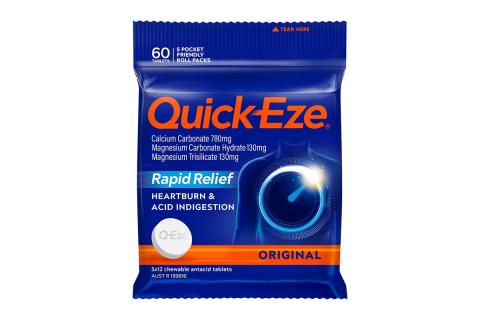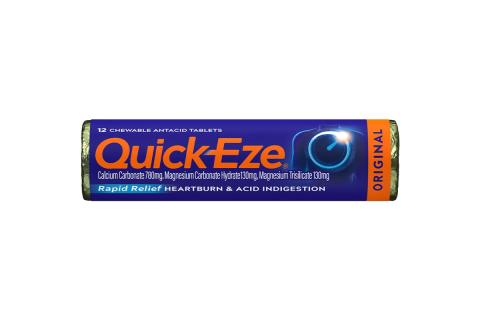How to Avoid Acid Reflux with Lifestyle Change
Imagine living your best life without having to worry about that burning sensation in your chest and throat. Acid reflux and heartburn are common gastrointestinal conditions that can cause discomfort and irritation, but with a few lifestyle changes, you can take control of these issues.
Managing acid reflux and heartburn often involves avoiding acid reflux trigger foods, maintaining a healthy weight, and practicing good eating habits. There are many risk factors that can influence these issues including obesity, smoking, certain foods, and stress.
Rest assured, you’ve come to the right place to learn how to avoid acid reflux and to effectively manage it for a better quality of life. Feel free to explore our category pages on heartburn and acid reflux for more in-depth information and tips on dealing with these digestive issues.
Avoid heartburn and acid reflux triggers
If you want to know how to prevent acid reflux, it's important to steer clear of common acid reflux trigger foods and beverages. Some examples of foods and drinks that can aggravate these conditions include spicy foods, citrus fruits, and carbonated beverages. Take a look at our comprehensive list of acid reflux triggers to foods to avoid to understand what you can adjust in your diet.
When it comes to heartburn causes, eating foods that are less likely to cause discomfort is key to maintaining digestive health. Lean towards lean proteins, non-citrus fruits, vegetables, and whole grains to help reduce symptoms.[1]
Practising mindful eating can also make a big difference. This includes eating slowly, chewing thoroughly, and monitoring portion sizes to prevent overeating and reduce the risk of acid reflux and heartburn. Additionally, maintaining good posture while eating helps minimise the likelihood of experiencing discomfort from acid reflux and heartburn. Try sitting up straight and avoiding lying down immediately after meals to aid your digestion.
Get up and go
Doing regular physical exercise can help in managing acid reflux and heartburn. Activities like walking, yoga, and swimming are excellent options as they promote overall well-being and can aid in reducing digestive issues.
Exercise helps with digestion by promoting healthy gut movement and reducing bloating.
- Walking is great for stimulating digestion and helping prevent constipation.
- Yoga can help relax your digestive system and alleviate symptoms of acid reflux and heartburn.
- Swimming is a low-impact exercise that can promote circulation and reduce stress, which can contribute to improved digestion.
Incorporating these activities into your routine can not only help with managing acid reflux and heartburn but also contribute to your overall health and wellbeing.
A healthy weight
Excess weight can significantly contribute to the development of acid reflux and is one of the main heartburn causes. Carrying extra pounds puts pressure on the abdomen, which can lead to the backflow of stomach acid into the esophagus, causing discomfort and irritation.[2]
Achieving a healthy weight is a journey that requires dedication and patience. Focus on making small, sustainable changes to your diet and lifestyle, such as incorporating more fruits and vegetables, staying hydrated, and engaging in regular physical activity.
Remember that slow and steady progress is key to long-term success in weight management and overall wellbeing.
Acid reflux sleep tips
The quality of sleep also plays a crucial role in managing acid reflux and heartburn. Poor sleep habits, including inadequate sleep duration and disrupted sleep patterns, can exacerbate these digestive issues. Additionally, the timing of meals, especially late-night eating, can have a negative impact on digestion and increase the likelihood of experiencing acid reflux and heartburn during the night.
Late-night eating can lead to increased stomach acid production when lying down, making it easier for acid to flow into the esophagus and acid reflux trigger symptoms.[3] To improve sleep quality and reduce the risk of acid reflux and heartburn, consider the following tips:

Elevate your bed head
Here’s a great acid reflux sleep tip: Use bed risers to elevate the head of the bed to help prevent stomach acid from flowing back into the esophagus while you sleep.

Comfort is key
Keep your bedroom cool and well-ventilated at night. Choose breathable bedding to prevent overheating, which can worsen acid reflux symptoms.

Avoid late-night meals
Aim to finish eating at least two to three hours before bedtime to allow for proper digestion and reduce the likelihood of acid reflux episodes during the night.
By prioritising a good sleep routine, you can help alleviate symptoms of acid reflux and heartburn and improve your overall sleep quality.
Rapid relief is at hand
While it's essential to focus on managing symptoms and making lifestyle changes to address acid reflux and heartburn in the long term, Quick-Eze® can provide rapid relief for indigestion, heartburn, and acid reflux when needed. Quick-Eze® offers rapid antacid products that can help alleviate discomfort and acidity in the stomach.
For rapid relief, consider trying these Quick-Eze® products:
|
Image

|
Image

|
Image

|
| Quick-Eze® Original Tablet Rapid Heartburn & Indigestion Relief | Quick-Eze® Peppermint Chewy Rapid Heartburn & Indigestion Relief | Quick-Eze® Forest Berry Chewy Rapid Heartburn & Indigestion Relief |
|
Beat heartburn on the go and make the most of life’s delicious moments, wherever you are. |
Our Peppermint Chewy antacids are a refreshing way to say goodbye to heartburn. |
These chewy antacids help you relieve discomfort, so you can get back to enjoying your day. |
By having Quick-Eze® on hand, you can rapidly relieve occasional episodes of indigestion and heartburn, allowing you to feel more comfortable and at ease.
Rapid relief from acid reflux
Life doesn’t have to stop just because of discomfort. With a few lifestyle changes, you can manage your symptoms effectively and experience relief from indigestion, heartburn and acid reflux. Try the suggestions above and you’ll be on your way to keeping that burning sensation at bay.
However, if digestive issues persist, talk to a healthcare professional for further evaluation and treatment. And when you need rapid relief, don’t forget to keep a pack of Quick-Eze® handy.
[1] https://www.healthline.com/health/food-nutrition/foods-that-beat-fatigue
[2] https://www.medicalnewstoday.com/articles/acid-reflux-weight-loss
[3] https://www.medicalnewstoday.com/articles/acid-reflux-at-night
[4] https://www.orlandohealth.com/content-hub/7-tips-for-exercising-with-gerd
FAQs about how to avoid acid reflux
How do you reduce reflux?
If you want to know how to avoid acid reflux, remember to avoid acid reflux involves avoiding acid reflux trigger foods, maintaining a healthy weight, practicing good eating habits, and elevating the head of your bed while sleeping.
How can you stop acid reflux when drinking alcohol?
To reduce acid reflux when drinking alcohol, try to limit your alcohol consumption, avoid mixing alcohol with carbonated beverages, stay hydrated and choose lower-acid options like clear spirits over acidic drinks.[6] Additionally, refrain from lying down immediately after drinking to minimise the risk of acid reflux.
Does running make acid reflux worse?
For some people, working out can be one of the main acid reflux causes. High-impact exercises like running may aggravate acid reflux symptoms.[4] It's recommended to opt for low-impact activities to minimise discomfort during exercise.
Does cold milk help acid reflux?
While some people find relief from acid reflux symptoms by consuming cold milk, it may not work for everyone.[5] Milk can temporarily soothe the esophagus but may not address the underlying causes of discomfort, like acid reflux trigger foods.
Can you permanently stop acid reflux?
It is not possible to permanently stop acid reflux. However, managing symptoms through lifestyle changes, medication, and occasional antacids can help control and reduce the frequency of episodes.
Can changing your diet stop acid reflux?
Changing your diet by avoiding acid reflux trigger foods and incorporating foods that are less likely to cause acid reflux can help alleviate symptoms. However, individual responses to dietary changes may vary.






